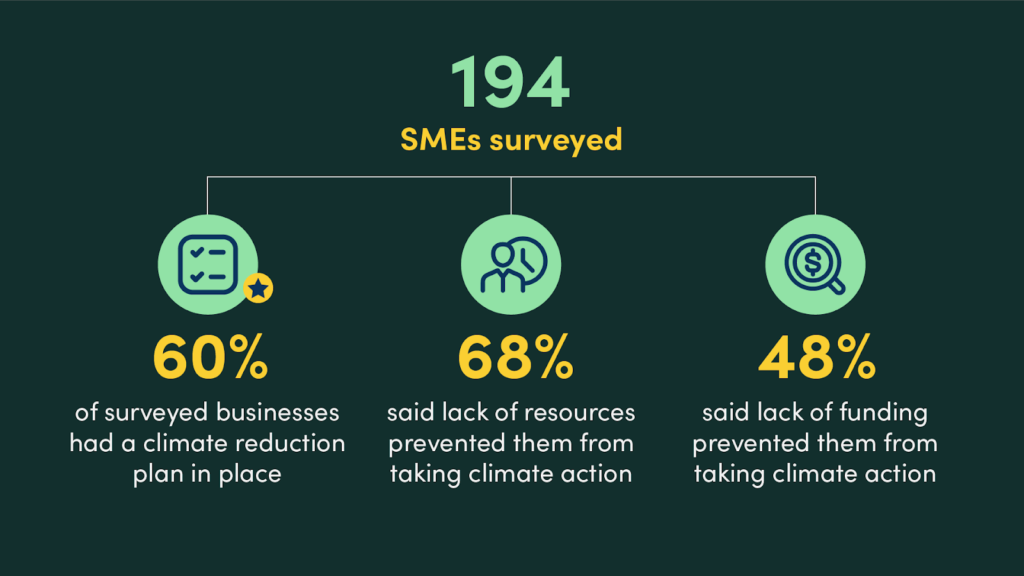Product & Service Information
Introducing the Issue
It is a basic responsibility of any business to provide essential information about its products and services that is easily accessible, complete, not confusing, and stated in plain and understandable language. This transparency not only helps customers make informed decisions but also builds trust and credibility.
How does your company perform on Product & Service Information?
What is your company’s current approach to product and service information? Do you have policies or practices developed? Perhaps this isn’t an issue that you need to worry about right now? We’ve developed benchmarks that attempt to define Poor, Okay, Good and Excellent company performance standards regarding product and service information.
You are invited to assess your business against these benchmarks, for free and without obligation.
Product & Service Info
Follow this link to:
1 – choose your score
2 – add a few lines by way of explanation to describe your policies and practices
3 – enter your email address so that we can get back to you
4 – submit
Nothing you submit will be published or shared.
Exploring the Issue
When selling products and services, certain core areas are generally covered by consumer protection law. In the UK, this includes safety, pricing, weights and measures, descriptions of products and services, the contract between a buyer and seller, competition between businesses, intellectual property and counterfeiting. The United Nations also requires businesses to make sure their consumers are well-informed not only about their products, but also of their rights as consumers. This includes information related to health and nutrition, product hazards, environmental impact, the use of materials [including energy + water], and electronic commerce.
Businesses that are selling services, to individuals or other businesses, have further obligations and some sectors are more tightly regulated than others. For example, under UK law, the main features of the service being offered should be explicit, if not already apparent from the context. Generally, if a price is not predetermined, a business must be able to supply a detailed estimate so that a client can use the proposed method to calculate the cost, check the figures and arrive at the price. Service providers may need to provide the terms and conditions used, including information on any contract terms that are governed by the law of a particular country.
However, consumer protection legislation is not exhaustive. In some cases, companies can get away with making false claims about their products due to loopholes in the country’s consumer protection laws. For example, Tic-tacs are able to claim that they are sugar-free (despite being made almost completely of sugar) by manipulating their serving sizes so that the US Food and Drug Administration can’t legally require them to report the ingredient’s percentage to their consumers. Because of companies and products like Tic-tac, many countries have seen an increase in lobbying for consumer protection laws to insure that consumers are protected from inaccurate product description and deception by companies.
In 2013, the UK passed the Consumer Contracts Regulations that applies to all businesses in Great Britain. The regulations aim to protect consumers in deals made with businesses off-premise, from a distance, and digitally. These regulations are especially relevant as the world has become increasingly digitised. It requires businesses to inform consumers of:
- A description of the goods, service or digital content, including how long any commitment will last on the part of the consumer
- The total price of the goods, service or digital service or the manner in which the price will be calculated if this can’t be determined
- How consumers will pay for the goods or services and when the product/service will be provided to them
- All additional delivery charges and other costs (and if these charges can’t be calculated in advance, the fact that they may be payable)
- Details of who pays for the cost of returning items if the consumer has a right to cancel and change their mind
- Details of any right to cancel – Businesses also need to provide, or make available, a standard cancellation form to make cancelling easy
This information should be provided to consumers in a ‘durable medium’ such as on paper or via email. It should be easy to access for anyone. Despite regulations like this many consumers still lack basic protections and as the world has globalised and digitalised, changes to the global marketplace are outpacing consumer protection.
Definitions
After-Sales Service is any service provided after a customer has purchased a product including support regarding warranty service, training, or repair and upgrades.
Competent Authority refers to a body with a regulatory or supervisory role over the provision of a service, such as a professional body or a central or local government authority.
Consumer Contracts Regulations [2013] applies to contracts made both on and away from business premises, as well as contracts made ‘at a distance’; there are also rules for businesses providing digital content. These Regulations affect most businesses that contract with consumers, irrespective of where and how the contract is entered into.
Consumer Education provides resources that advise consumers of price and trade information from businesses.
Green Claims Code [2021] is legislation passed by the CMA to prevent businesses from misleading consumers on eco-friendly claims.
Greenwashing refers to misleading claims about the environmental impact of a product, brand, business or service, without evidence to back it up.
Product refers to something that is made to be sold, usually something that is produced by an industrial process or, less commonly, something that is grown or obtained through farming.
Provider means a body or individual that provides a relevant service within the EEA. Most of the Regulations only apply to providers who are established in at least one EEA state.
Service means a self employed economic activity (normally provided for remuneration).
Terms And Conditions refers to the document governing the contractual relationship between the provider of a service and its user.
United Nations Guiding Principles for Consumer Protection [2016] is “a valuable set of principles for setting out the main characteristics of effective consumer protection legislation, enforcement institutions and redress systems and for assisting interested Member States in formulating and enforcing domestic and regional laws, rules and regulations that are suitable to their own economic and social and environmental circumstances, as well as promoting international enforcement cooperation among Member States and encouraging the sharing of experiences in consumer protection”.
Links & Further Resources
ARTICLES

Products and Services: Examples and Best Practices
Investopia
Gives individuals a guided understanding of after-sales service support. Article includes examples of after-sales support and explains how it leads to higher customer satisfaction, and brand loyalty.

What is Greenwashing?
CPD Online College
Explains what greenwashing is, how it can harm a brand’s reputation, and how businesses can avoid greenwashing. Article also introduces the Green Claims Code and talks about their key principles (must be truthful, etc).
RESOURCES

Knowing Your Product and Services
Queensland Government
This resource provides information about how users can be knowledgeable about their products/services and how they can turn their product features into benefits.
